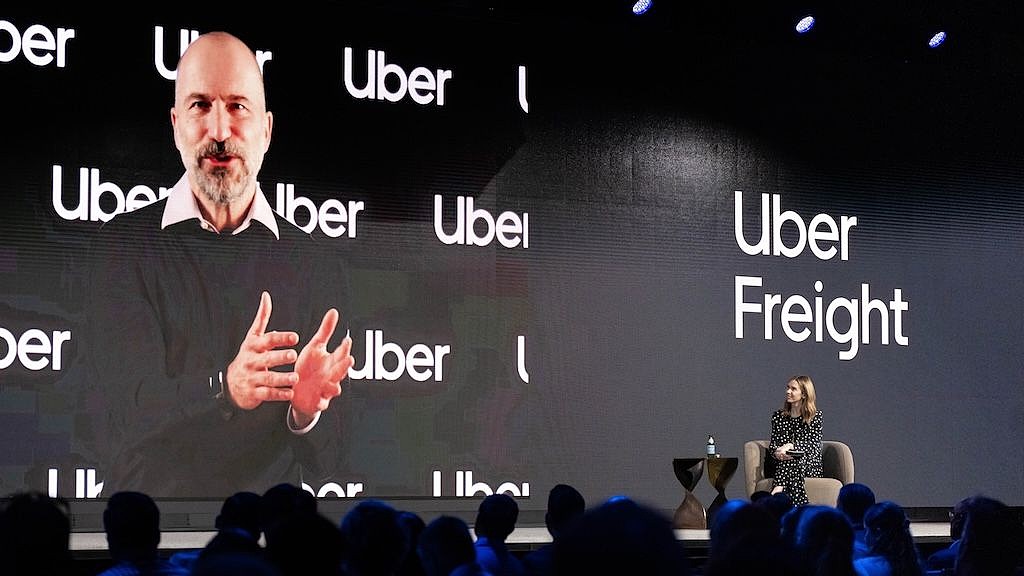Uber Freight conference spotlights AI, tariffs, “profitless prosperity”
JACKSONVILLE — Uber Freight’s Deliver 2025 conference on Wednesday featured a conversation with Uber CEO Dara Khosrowshahi, who outlined his outlook for the freight industry.
Other sessions at the annual event included a freight market update and a keynote economic forecast with Brian Beaulieu, CEO of ITR Economics.
Deliver 2025 was held in Jacksonville, Florida, from Monday through Wednesday. About 200 shippers and industry experts attended keynote addresses, workshops, demos, and networking sessions exploring where the freight industry is headed and how companies can prepare.
Khosrowshahi laid out his vision for Uber’s next chapter, spotlighting growth at scale, freight investment, and the promise of AI and autonomous vehicles.
San Francisco-based Uber operates three platforms: Uber (ride-hailing), Uber Freight (logistics), and Uber Eats (food and goods delivery). The company is running at a $200 billion annualized rate across its businesses, Khosrowshahi said.
“We’re very much a technology company, but one grounded in reality,” he said.
On the mobility side, Uber is expanding affordable options such as two- and three-wheeler rides in Brazil and Mexico, and introducing safety tools like in-app video recording and women-for-women ride matching. Uber Eats has grown into a marketplace delivering groceries, electronics, and cosmetics.
Freight, Khosrowshahi emphasized, remains a long-term bet. Despite market headwinds, Uber continues to invest in end-to-end logistics and sees AI as a differentiator.
Autonomous vehicles, he said, could be the “ultimate breakthrough,” improving safety while lowering costs. Partnerships with companies including Waymo and Aurora aim to put Uber at the center of that shift.
“The most important trick is obvious,” he added. “Put yourself in the shoes of the customer.”
During Uber Freight’s third-quarter market update, senior economist Mazen Danaf cautioned that rising U.S. tariffs are pressuring the economy, and straining household budgets and supply chains.
He noted the weighted average U.S. tariff rate has climbed to 16.4%, the highest level since the 1930s.
“It’s expected that these tariffs will result in an inflation of about 1.3% or 1.4%,” Danaf said. “And we haven’t seen this full inflation on the consumer side yet. So this is equivalent to about a $2,000 loss in household income per year. And it mainly affects commodities like clothing, apparel, footwear, leather, etc.”
Industrial inputs — including machinery, metals, minerals, and electrical equipment — are also being hit, he added, creating challenges for both consumers and manufacturers.



Leave a Comment
Your email address will not be published. Required fields are marked *